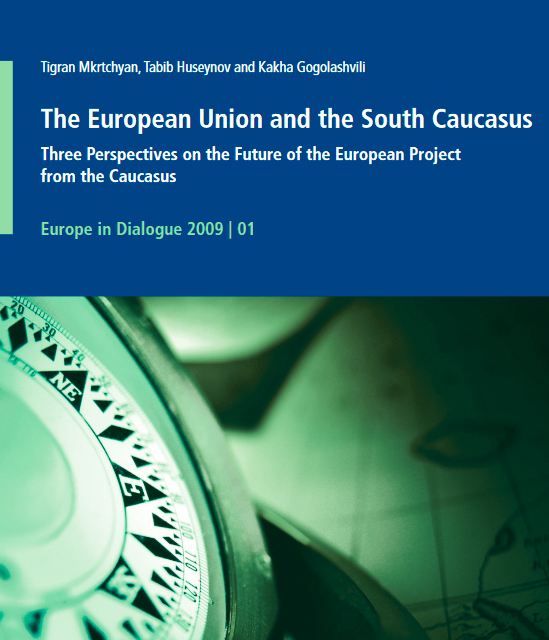The European Union and the South Caucasus. Three perspectives on the future of the European project from the Caucasus
| Регион: | Европа |
| Год издания: | 2009 |
| Авторы / под ред. : | Kakha Gogolashvili |
Описание
Издательство: Bertlesmann-Stifftung
ISBN:1868-5048
Tigran Mkrtchyan singles out three main factors that determine Armenia’s rather positive attitude to and interest in EU policies in the Caucasus region. Firstly, further cooperation with the EU could guarantee a democratically stable future for the country. Secondly, Armenia would benefit from increased economic cooperation with the EU. Thirdly, to a large extent the population feels that it belongs to Europe. However, some critics, mostly from the ranks of the intelligentsia, have expressed concern that too much Europeanization constitutes a threat to national identity. Tabib Huseynov agrees with Mkrtchyan in calling for a more active EU role in the region and most notably in the resolution of the Nagorno-Karabakh conflict. This would lay the foundations for the ongoing development of the region. Huseynov outlines factors contributing to or impeding regional cooperation in the South Caucasus and cooperation between the EU and Azerbaijan. Whereas Georgia and Armenia are seeking EU membership in the long term and financial assistance in some areas, Azerbaijan remains financially independent on account of its oil revenues and is not interested in EU membership in the near future. It is far more interested in increased economic and trade cooperation.Kakha Gogolashvili, Director of EU Studies at the Georgian Foundation for Strategic and International Studies (GFSIS), describes the level of acceptance for EU policies in Georgia. To a large extent the general goals of Georgian policy-makers are aligned with those of the EU, and this facilitates cooperation in implementing reforms in the country.
Прошедший опрос
-
Какие угрозы для окружающей среды, на ваш взгляд, являются наиболее важными для России сегодня? Отметьте не более трех пунктов
Увеличение количества мусора 228 (66.67%) Вырубка лесов 214 (62.57%) Загрязнение воды 186 (54.39%) Загрязнение воздуха 153 (44.74%) Проблема захоронения ядерных отходов 106 (30.99%) Истощение полезных ископаемых 90 (26.32%) Глобальное потепление 83 (24.27%) Сокращение биоразнообразия 77 (22.51%) Звуковое загрязнение 25 (7.31%)

«Международные исследования в России»

Статистические данные по международной проблематике

Электронные журналы и библиотеки

Евгений Афанасьев, Чжоу Сяопэй

Александр Бобров, Ольга Лебедева

Виктор Хейфец

